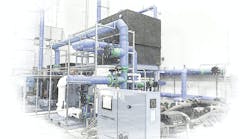The Washington State Department of Agriculture (WSDA) has closed a Seattle soy products manufacturer over persistent sanitation issues, the regulator announced.
Chu Minh Corporation, which makes tofu and other soy food, has been fined $17,800 and had its food-processing license revoked. All products at the facility have to be destroyed, the WSDA also ordered. The move follows several inspections on site by the WSDA which discovered that sanitation conditions at the facility were below state standards. Despite the fact that Chu Minh has been warned several times, it failed to implement the recommended measures to improve sanitation control. All retail outlets and restaurants that have bought or distributed products originating from Chu Minh have been warned of the license revocation, the WSDA stated.
The company is not allowed to process any food at the facility and now has 10 days to appeal the decision and ask the regulator to reconsider its order. However, it is not allowed to operate during the appeal period.
Previously, inspectors from the WSDA visited the Seattle facility and found problems with unsanitary conditions, poor sanitation practices by employees, pest infestations and a general failure to protect food products from contamination. Inspectors found pigeons and rats — both dead and alive — as well as fecal droppings and insects near food during a number of health inspections over the past year at the company's facility, according to the department. During the most recent inspection on March 6, inspectors noted that many of the same problems were still present, which eventually led to the license revocation.
RELATED: Soy processor Green Hope to halt operations over food safety breaches
In addition, inspections revealed that workers were also denied access to washing facilities because sinks were often filled or blocked by equipment and the faucets were unreachable, the WSDA statement pointed out.
WSDA spokesman Hector Castro commented that the department had to close down the facility, even though it tried to avoid taking this measure. However, the regulator had no alternative, since most of the previous prescriptions were not implemented by the company.
Chu Minh was also warned by the U.S. Food and Drug Administration (FDA) on two separate occasions, with notices of intent to suspend its license in both cases, after the WSDA was joined by the federal watchdog in inspecting the facility.
Last year the owner of Chu Minh, Thanh-Nga "Tanya" Nguyen, managed to prevent the closedown of the plant by signing an agreement with the state of Washington that required her to improve sanitary conditions at the facility or face a revocation. According to Nguyen, the company spent about $40,000 to improve sanitation and as a result the plant passed a subsequent WSDA inspection with a nearly perfect score. She added that she took full responsibility for not failing to ensure that the improved sanitary conditions were successfully kept at the same level and apologized in a letter to customers and inspectors.


